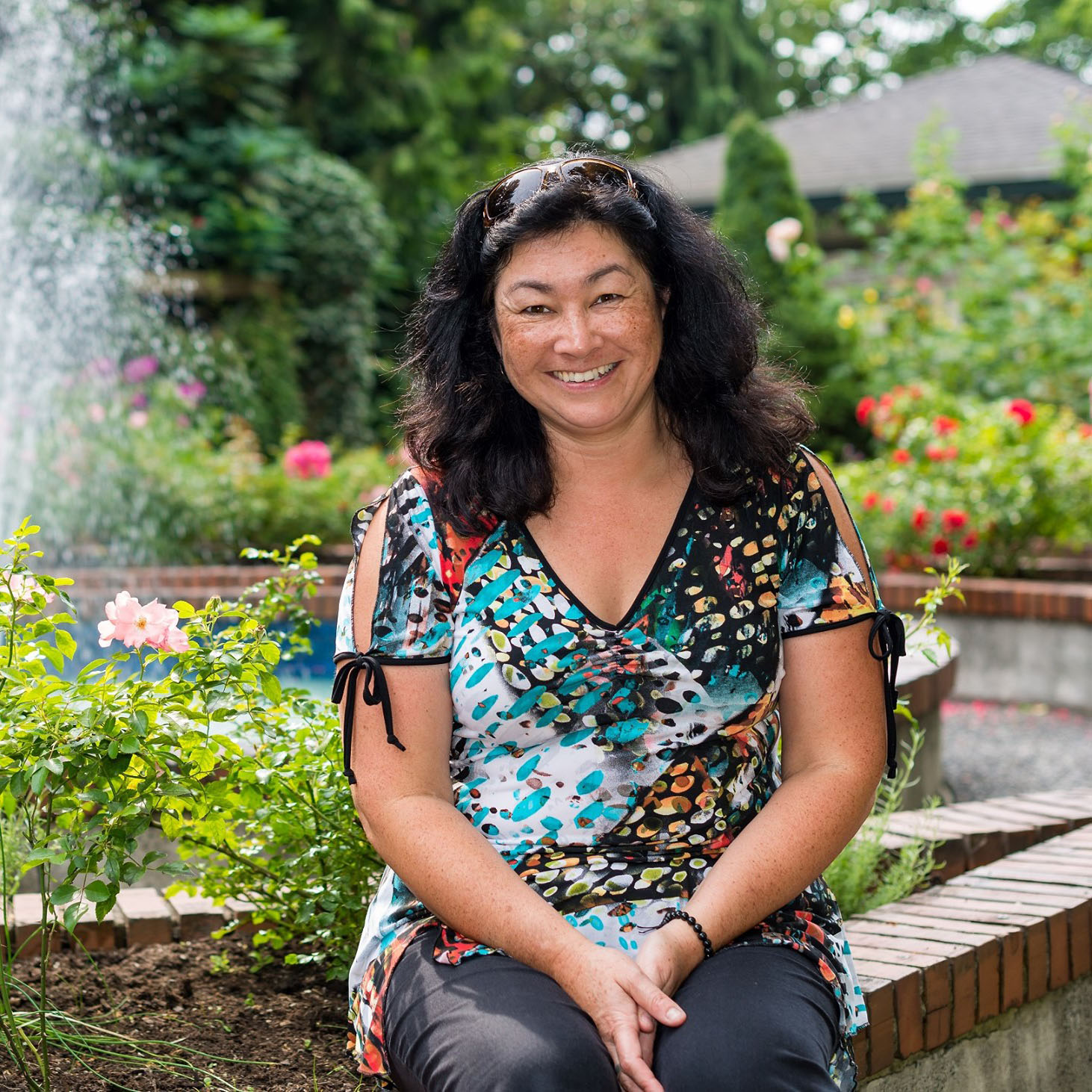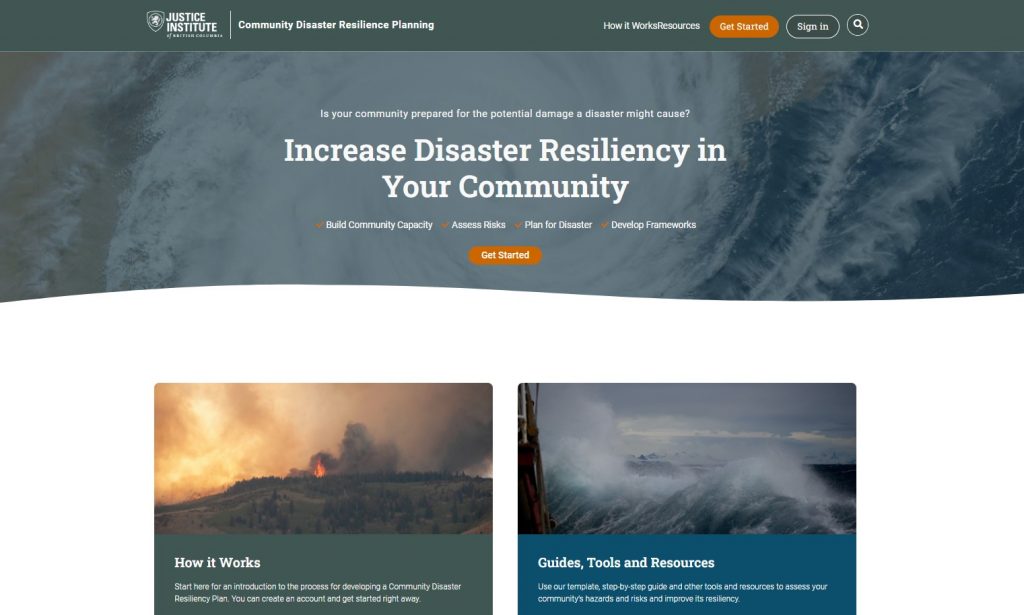
Bettina Williams & Dawn Ursuliak
The Justice Institute of British Columbia has developed a unique online Community Disaster Resilience Planning (CDRP) Tool website that provides expert and community-informed tools, and strategies for rural, remote, and indigenous communities that need support and guidance with resources to plan and respond to disasters. Engaging in the CDRP process of moving towards disaster resiliency will increase a community’s understanding of hazards and community resiliency factors. With this added knowledge, a community will become stronger, healthier, experience sustainable growth, and be better able to meet the challenges of tomorrow.

AUTHORING TOOL(S) USED
WHY WAS THIS PROJECT NEEDED?
This project was funded in thanks to a Vancouver Foundation 3-year grant. The Community Disaster Resilience Planning (CDRP) Project involved the adaptation of the Aboriginal Disaster Resilience Plan (ADRP) and Rural Disaster Resilience Plan (RDRP) Frameworks to be inclusive of all rural, remote, small, and Indigenous communities across Canada. This project involved the redesign of user functionalities, adaptation of content for both an Indigenous and non-Indigenous context, and it involved simplifying the functional processes for consistency between instruments and plan components. This was based on feedback surveys over the years from other projects, community users, and a usability study
HOW DOES THIS DEMONSTRATE INNOVATION?
This project demonstrates innovation as the CDRP website has been designed to provide communities with a publicly accessible and source website to access and identify their level of community and disaster resilience and the resiliency to specific hazard utilizing the tools and resources to build a plan. Building community disaster resilience is an ongoing, year-round process aimed at strengthening the community’s ability to prepare for, respond to and recover from a disaster
PROBLEMS OR CHALLENGES FACED?
Challenges – due to the pandemic, conducting the workshops online required an adjustment. We were not able to spend in-person time with the communities to demonstrate the tools and have them practice while being there. Missed engaging in the discussions and conversations that would occur while working through the use of the tools and processes. We lacked the personal connection, engagement and sense of community as we had with previous pilot communities. We struggled with community members not being very savvy with technology.
LESSONS LEARNED
– Being able to adjust under unprecedented circumstances.
-Making the most of a virtual environment.
-In person demonstration and opportunity for community members to practice using the website and tools is beneficial with a facilitator.
PROJECT LINK
Join Bettina Williams virtually for DEMOFEST Day 1 on Tuesday, October 11, 2022 from 10:00am to 11:30am in Teams.
Or you can visit Bettina & Dawn’s table for DEMOFEST Day 2 on Wednesday, October 12, 2022 from 10:30am to 12:00pm happening at JIBC’S New Westminster’s Main Campus.




